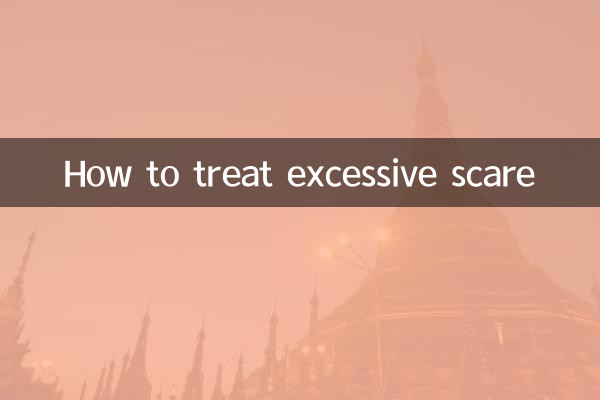How to treat excessive scare
In recent years, with the increase of social pressure and the acceleration of life pace, excessive frightening (acute stress response) has become a concern for many people. Excessive frightening is usually manifested as symptoms such as palpitations, insomnia, anxiety and even panic attacks. This article will combine popular topics and hot content on the entire network for the past 10 days to provide you with structured data and introduce in detail the treatment of excessive shock.
1. Common symptoms of excessive fright

Symptoms of excessive frightening vary from person to person, but here are some common manifestations:
| symptom | describe |
|---|---|
| Heart palpitations | Accelerated or irregular heartbeat |
| Insomnia | Difficult to fall asleep or poor sleep quality |
| anxiety | Continuously feeling nervous or uneasy |
| Panic attack | Sudden intense fear |
| Inattention | Difficult to focus on daily tasks |
2. Treatment for excessive frightening
Treating excessive frightening requires a combination of various methods. Here are some effective treatment options:
| Treatment method | Specific measures |
|---|---|
| Psychological therapy | Cognitive behavioral therapy (CBT), exposure therapy, etc. |
| Drug treatment | Anti-anxiety drugs, antidepressants (requires doctor's guidance) |
| Relaxation Tips | Deep breathing, meditation, progressive muscle relaxation |
| Lifestyle adjustment | Regular work and rest, moderate exercise, healthy eating |
| Social support | Talk to relatives and friends and join the support group |
3. The relationship between hot topics and excessive frightening in the entire network in the past 10 days
The following are the content related to excessive shock among hot topics on the Internet in the past 10 days:
| Hot Topics | Relevance |
|---|---|
| Workplace pressure | Long-term high-pressure work can easily lead to excessive frightening |
| Natural disasters | Acute stress response after disasters |
| Social Media Anxiety | Information overload may increase psychological burden |
| The epidemic is repeated | Uncertainty increases psychological stress |
| Celebrity Mental Health Issues | Arouse public attention to mental health |
4. Practical suggestions for preventing excessive fright
Prevention is better than treatment. Here are some practical suggestions for preventing excessive fright:
| suggestion | Specific content |
|---|---|
| Establish a healthy routine | Ensure adequate sleep and avoid staying up late |
| Learn to manage emotions | Identify and express emotions reasonably |
| Moderate exercise | 3-5 aerobic exercise times a week |
| Restricted stimulus sources | Reduce contact with terrorist content |
| Cultivate interests and hobbies | Distract attention and relieve stress |
5. When do you need professional help?
If the following situations occur, it is recommended to seek help from a professional psychologist immediately:
| symptom | illustrate |
|---|---|
| Symptoms last longer than 1 month | May develop into post-traumatic stress disorder |
| Influence daily life | Not working or socializing |
| Have self-harm or suicide thoughts | Need immediate intervention |
| Accompanied by other mental symptoms | Such as hallucinations, delusions, etc. |
6. Conclusion
Excessive fright is a common psychological problem in modern society, but most people can recover effectively through correct treatment and preventive measures. It is important to realize that mental health is equally important as physical health, and seeking help in a timely manner is a wise choice. Hopefully the structured data and practical advice provided in this article can help you or the people you care about to better deal with excessive frightening.
Remember: Mental health cannot be ignored. Care for yourself and start with your heart.

check the details

check the details